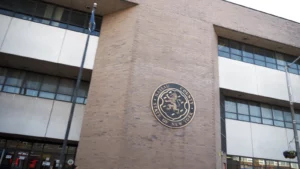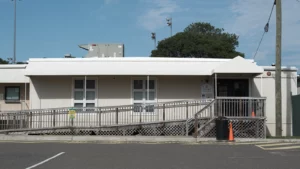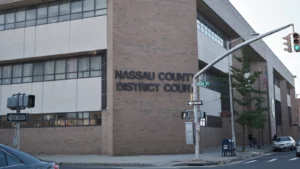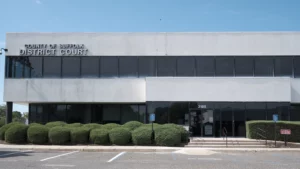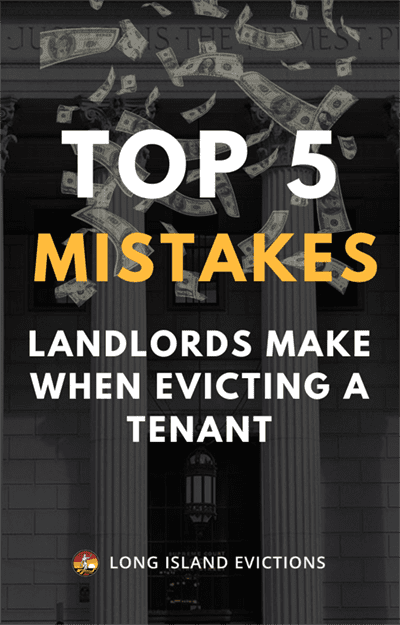In Olszewski v Neuman, 2011 NY Slip Op 51287(U), a Nassau County District Court case, tenants sued their landlord for the return of their $2,100 security deposit. The tenants entered into a one-year written lease with their landlord commencing on May 1, 2010, and vacated the apartment on October 30, 2010, seven months before the expiration of the lease term.
The tenants are claiming that they were constructively evicted from their apartment due to lack of heat, unsanitary conditions, and noise caused by other tenants in the building. Constructive eviction is a legal term describing a circumstance where the landlord does something, or fails to do something that he has a legal obligation to do, such as provide heat and water to the apartment, make necessary repairs, etc., and as a result, the apartment is rendered uninhabitable. Typically, in order to succeed on a constructive eviction claim, a tenant must demonstrate that the apartment was rendered so inhabitable by the landlord’s action or lack thereof that the tenant had to vacate the premises.
In this case, the landlord claims that the tenants are not entitled to the return of their security deposit since they breached their lease by moving out early, and since the landlord was under no obligation to make repairs, as the landlord was under no obligation to provide heat during the summertime.
The Facts:
According to the facts of the case, shortly after moving in, the tenants discovered that the thermostat was not working properly and they were without heat. In May of 2010, the tenants notified their landlord of the issue. Some time after the tenants moved in, new tenants moved into another unit in the building. The tenants state that the new tenants caused conditions that disturbed their right to quiet enjoyment of the property. Specifically, the tenants complained to the landlord that the new tenants left trash in the yard causing odor and insect infestation, caused crowding of vehicles and unregistered vehicles on the property, littered, left dog feces all over the yard, and made general complaints of overcrowding and continual noise.
On August 18, 2010, the tenants requested from the landlord that the thermostat be repaired. The landlord never made the repairs, and failed to respond to the tenants. On September 22, 2010, the tenants again complained of the lack of heat, unsanitary living conditions in the common areas, and overcrowding in the adjacent apartment. On September 28, 2010, the landlord responded via text message stating that heat was not necessary in the summer months, and acknowledged that the boiler connecter had not been attached.
On October 4, 2010, the parties met. The tenants advised their landlord that they were vacating the premises, and asked the landlord to let them out of their lease. The landlord refused.
The tenants advised their landlord that they were moving out by letter dated October 15, 2010. They stated that they would vacate and relinquish possession of the premises effective October 30, 2010, due to the lack of heat and other living conditions. The tenants attempted to secure a time and place to surrender the keys to the premises, by letter dated October 23, 2010. The landlord failed to respond.
The tenants advised their landlord by letter dated October 30, 2010, that they were including the keys and photographs of the premises in the mail. They also demanded their $2,100 security deposit and provided a forwarding address. The tenants moved out of the apartment on October 30, 2010.
At trial, the tenants produced a letter from the Village of Cedarhurst stating that on October 20, 2010, the Village performed an inspection of the boiler. The letter confirmed that the heat was not working in the apartment, and that the Village called the landlord to repair the heating. The landlord represented to the Village that the heat was repaired that day.
The tenants allege that the landlord agreed to permit them to break their lease through constructive eviction. The landlord alleges that he never agreed to break of the lease. He states that he performed his obligation under the rental contract. He further states that he was not required to provide heat during the months of May to October. The landlord also claims that the conditions created by the adjoining tenant were not sufficient to rise to the level of a disruption of the tenants’ quiet enjoyment of the property.
Landlord Tenant Law:
A residential lease is a sale of both shelter and services by a landlord. Park West Management Corp. v. Mitchell, 47 NY2d 316 (1979). When a landlord contracts to lease a property, the landlord impliedly warrants: first, that the premises are fit for human habitation; second, that the condition of the premises is in accord with the uses reasonably intended by the parties; and, third, that the tenants are not subjected to any conditions endangering or detrimental to their life, health or safety. Park West Management Corp. v. Mitchell, 47 NY2d 316 (1979).
A landlord can breach these implied warranties by depriving a tenant the quiet enjoyment of the apartment. To establish a breach of the covenant of quiet enjoyment, a tenant must show either an actual or constructive eviction. Grammar v. Turits, 706 N.Y.S.2d 455-56 (2d Dep’t 2000). An actual eviction occurs when a tenant is physically ousted from his apartment. A constructive eviction occurs when a landlord’s wrongful acts substantially and materially deprive a tenant of the intended beneficial use and enjoyment of the leased premises. Id. at 455-56.
The Nassau County Public Health Ordinance requires that heat be provided from October 1st through May 31st. During this period, the required minimum temperature is 65 F between 10PM and 6 AM (overnight) and 68 F between 6AM and 10PM (during the day). A tenant is justified in vacating the premises if he/she was deprived of heat for an unreasonable time. Berlinger v. MacDonald ,149AD 5,(1st Dept. 1912)
In this case, the Nassau County District Court found that based on the facts, there was insufficient evidence to support a claim of lack of quiet enjoyment created by the adjoining tenants. In other words, the tenants failed to provide sufficient evidence at trial to establish that the new tenant’s behavior (leaving trash in the yard, overcrowding, excessive noise, etc.) amounted to enough of a disturbance to deprive the tenants of use and enjoyment of their apartment.
In addition, the Nassau County District Court found that the landlord was not required to provide heat during the months of May to September. However, the landlord failed to provide heat during the month of October. Further, the Court found that the failure to furnish heat was due to a defect in the connection of the boiler, which required it to be repaired by the landlord. The landlord was entitled to reasonable time to remedy the defect.
Although the landlord had no duty to provide heat during the summer months, he had the opportunity to repair the defect within a reasonable time before the heating season began. Once the month of October commenced, the landlord was obligated to supply heat to the tenant if the temperature fell below normal standards. Albeit, the landlord was not required to provide heat during the summer months, the tenants continued to complain to the landlord. It was not until the Village of Cedarhurst performed an inspection on October 20th, that the heating was repaired. However, at that point the tenants had secured other housing.
The Nassau County District Court found that it was unreasonable to expect the tenants to remain in the premises with the winter season upon them and during the month of October, after having made numerous complaints to the landlord without any response. As such, the tenants were constructively evicted, and were entitled to the return of their security deposit.



